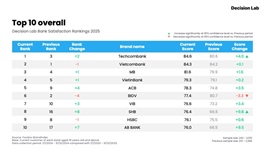Taxes on super rich and tech giants stall under Trump
Taxes on super rich and tech giants stall under Trump
Global tax plans targeting billionaires and multinational companies are running aground, with the United States torpedoing reforms under President Donald Trump.
The billionaire real estate tycoon has pulled the United States out of an international deal on taxing multinationals and threatened tariffs on countries that target US tech giants.
Here is a look at the state of play:
- Big tech taxes -
Countries have accused Amazon, Microsoft, Google owner Alphabet and Facebook's parent company Meta of sidestepping local taxes.
Trump issued a warning on February 21 to countries that would hit big tech and other US companies with fines or taxes that are "discriminatory, disproportionate" or designed to transfer funds to local companies.
"My administration will act, imposing tariffs and taking such other responsive actions necessary to mitigate the harm to the United States," he said in the memo.
The move reopens a rift between Washington and its allies over taxing digital services.
During his first term, Trump threatened to slap tariffs on US imports of champagne and French cheese after France rolled out a digital services tax in 2019.
Seven other countries have followed France's lead since then.
The tax generated 780 million euros ($887 million) for the French government last year.
Now the European Union is threatening to impose a tax on digital services if negotiations fail over Trump's plans to impose 20 percent tariffs on EU goods.
Britain, which is hoping to strike a trade deal with the United States, may reconsider its own digital levy, which currently brings in £800 million annually.
British Trade Secretary Jonathan Reynolds has said the digital tax is not "something that can never change or we can never have a conversation about".
- Global corporate tax -
Nearly 140 countries struck a deal in 2021 to tax multinational companies, an agreement negotiated under the auspices of the Organisation for Economic Co-operation and Development.
The OECD agreement has two "pillars".
The first provides for the taxation of companies in countries where they make their profits, a move aimed at limiting tax evasion. It primarily targets tech giants.
Pillar two, which sets a minimum global rate of 15 percent, has been adopted by around 60 economies, including Brazil, Britain, Canada, the EU, Switzerland and Japan.
Daniel Bunn, head of the Tax Foundation, a US non-profit think-tank, said negotiations on implementation of the first pillar "have been stalled for some time", even under Joe Biden's presidency.
Franco-American economist Gabriel Zucman told AFP that the EU's reaction in the coming weeks "will be crucial".
"If the EU and other countries give up and allow American multinationals to exempt themselves, it will unfortunately spell the end of this very important agreement," he said.
- Tax the rich -
Efforts to tax the world's ultra-wealthy are also stalling.
Brazil used its time as chair of the G20 to push for a plan to impose a two percent minimum tax on the net worth of individuals with more than $1 billion in assets, a project estimated to raise as much as $250 billion per year.
The Biden administration baulked at the plan and it is unlikely to get any traction with Trump -- a billionaire himself and proponent of tax cuts -- at the White House.
Almost a third of the world's billionaires are from the United States -- more than China, India and Germany combined, according to Forbes magazine.
At a recent conference in Paris, French economist Thomas Piketty said the world cannot wait for the G20 to all agree.
"We need individual countries to act as soon as they can," he said.
"History suggests that once you have a couple of countries who adopt a certain kind of reform, in particular powerful countries, it becomes sort of a new standard."
- 15:33 21/04/2025
























